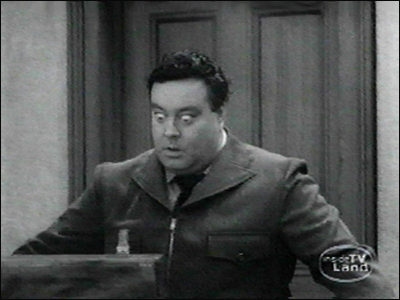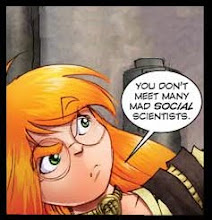Tyrants Should Tremble When Buses Strike
For the last three weeks or so, Tehran’s bus drivers have been striking for better pay and working conditions; here’s a very good Observer (U.K.) article and commentary about the ongoing dispute, written by Nick Cohen. (Hat tip: the inestimable, astute, and erudite Norman Geras of NormBlog.) I won’t waste your time (or mine, for that matter) restating what’s in the Observer piece; go ahead and read it.
Finished yet?
Good. The article pretty much speaks for itself, but it triggered a couple of thoughts:
- In case we needed to be reminded, this story shows that a dictator is never a friend of “the people”, or at least not for long. Power-seekers are also wealth-seekers and prestige-seekers; once they don’t have to worry about winning free and fair elections, they no longer need the support of the poor, who have little to offer beyond their votes. It doesn’t matter whether a dictator is a right-wing capitalist, a left-wing socialist, a theocrat representing the religion of your choice, a populist demagogue, or some other flavor of despot. Ideology is, in many ways, a distraction; the central dynamic in these situations is power and its abuse by entrenched elites. Thus we should always be cautious – at least – about supporting “good” dictators who we think are our friends and allies; in truth, the despot is a friend only to himself, and not always even that.
- Stories like this should be cautionary to those on the Israeli religious right who denigrate democracy and yearn for some form of Jewish theocratic state. I feel a bit odd having to mention this – it should be obvious to anyone, I would think – and yet, I frequently see anti-democracy comments written by some of my fellow “settlers” and their supporters, as well as other nominally Zionist types. (Even more strangely, all such comments I’ve seen were written by people who grew up in democracies. Perhaps these folks are too familiar with the problems of democracy, and not familiar enough with the alternatives.) These messianic types long for a return of the Biblical monarchy, or perhaps advocate a state run by a revived Sanhedrin; presumably they believe that such a non-democratic regime would be virtuous because it would be run by righteous, observant, scholarly Jews rather than by Ayatollahs, Communists, or other disreputable types.
I’ve got news for you, guys: There is no such thing as a virtuous dictatorship. Power corrupts, and democracy – despite its manifest flaws – is the only system available that limits this corruption. - President Ahmadinejad and the rest of Iran’s ruling establishment should be very worried indeed. In general, dictators don’t have too much to fear as long as their opponents are intellectuals, students, human-rights activists, and the like. These groups and individuals can all too easily be marginalized, suborned, suppressed, exiled, killed, or simply ignored; after all, nations can live quite comfortably (at least for a time) without philosophers. But when ordinary workers begin to lose faith in “the system” and cease to cooperate with it, things can become very rocky very quickly. A government can function without philosophers and novelists on its side, but it can’t survive for long without bus drivers, mechanics, nurses, garbage men, and the rest of the working-class heroes who keep society running. If Ahmadinejad and the mullahs keep trying to suppress labor unrest as they’ve been doing, sooner or later an Iranian Lech Walesa will appear; and once that happens the regime’s days are numbered.

Ralph Kramden’s gonna getcha if ya don’t! watch! out!!!
(This post can also be found at the Guns and Butter Blog.)
Categories: Iran, Ahmadinejad, Strike, Tehran.





6 Comments:
Yup. Even though we still haven't perfected democracy (if that isn't an oxymoron) it is the only political system that seems to prevent extremes, at least in the long run.
There was a very interesting article in Newsweek (Feb 6th American edition) about the rise of Islamic parties. The dictatorships of the middle east consistently worked aggressively to destroy the secular, liberal groups seeing them as the biggest threat. In the mean time Islamic groups were encouraged (as the opiate of the people) and as the people grew/grow disaffected with their leadership, the Islamic groups remain as the only alternative.
I am surprised, as you are by the interest in a theocracy shown by some messianic Jews. Most of those I have corresponded with seem like thouroughly nice people with an intense desire to move the country forward to a more observant life. I think they do imagine that it would be a kindler, gentler kind of theocracy and I agree that I do not think they have really considered all of the problems putting that much power into the hands of a few will bring about, probably because they have never yet been on the wrong side of the rabbinut.
Don - I pretty much agree with you, and I loved the picture at the end!
Two points, though: One, this settler at least has no problem with the idea of democracy - if it entails the type of democracy available in the US - you know, the one where there is a set of checks and balances, so that, say, the Supreme Court doesn't get to choose itself. And where the legislative branch is made up of people who are responsible to their voters, and not just to a small subset of powerful and rich people (central committees.... )What we want is a real democracy, not a fig leaf.
Two, your use of the word "type" makes me uncomfortable. What exactly is a "messianic type"? Every religious Jew prays for the messiah to come.
Hi Lisoosh and WBM!
1) WBM, I pretty much agree with your critiques of the Israeli political system. The fact remains, though, that for all its many flaws, our system does have the one essential element of a democracy: the fact that the voting public periodically gets to kick its current leaders out of office and select new ones to replace them. In recent elections, we've seen Shimon Peres unseated by Bibi Netanyahu; Netanyahu unseated by Ehud Barak; Barak unseated by Ariel Sharon. These may not all have been the most thrilling leaders in the world (depending on whom you ask, of course); but at least it remains true that in Israel being in power doesn't mean you automatically get to remain in power.
I use "types" more or less in the French way - just as a sort of catchall noun. I suppose that by "messianic type" I mean someone who is actively attempting to bring about some form of theocratic/monarchical rule in Israel, and not just someone who prays for Moshiach. In other words, my "messianic type" not only prays for Moshiach, s/he believes that any government other than Moshiach (or maybe a reconstituted Sanhedrin) is illegitimate.
I note that I also used the term "nominally Zionist types". In this case, I was referring to people who identify themselves as Zionists, but in fact lose no opportunity to denigrate the Jewish State we actually have.
BTW, I hope the point made by the picture at the end wasn't too obscure. Vaguely Sinister Wife (who didn't watch too much TV growing up; she was too busy hiking in the woods and riding horses, poor dear) had no idea who Ralph Kramden was. I had to look hard to find a good picture of him - and even this one didn't capture the full effect of Jackie Gleason portraying Ralph in full bluster.
Don, it is a superb post. Re your point 2 - as a pessimist, I would like to say that our religious extremists, exactly like leftie extremists, desire something that they have never experienced - each of these two groups wishes for its own version of totalitarianism, of course.
And westbankmama - this myth about our Supreme Court choosing itself is exactly what it is - a myth, propagated by Arutz 7. I definitely remember posting an acrimonious answer to a lady there, but it will suffice if you read this:
http://www.oefre.unibe.ch/law/icl/is03000_.html
snoopythegoon - having an automatic majority of 5 judges vs. 4 Knesset Members is not a separation of powers, in my opinion. There should be a completely separate body choosing the judges.
SnoopyTheDragon and WestBankMama are both partly correct. There isn't an automatic majority of five judges - at least not quite. There are three judges, two members of the Israeli Bar Association, two Cabinet members including the Justice Minister, and two Members of Knesset on the committee. So in theory, no one body has a monopoly vote on the committee.
However, there is a problem with this scheme. The members of the Bar Association are themselves lawyers, who obviously don't want to get themselves on the fecal roster of Supreme Court justices. Thus they are unlikely to exercise their independence as vigorously as might be wished. In any case, senior members of the Bar Association represent a "legal establishment" vote, unlikely to see the world very differently from the Supreme Court members on the committee.
There are obvious pitfalls to any method of selecting judges - particularly as Supreme Court judges rule on many politically-important cases. Anyone with a political agenda (essentially the entire population of Israel, plus overseas Zionists, plus my horse*) wants to influence the makeup of the Supreme Court. While the current method of selecting judges, which emphasizes stability and consistency, can be accused of creating too much uniformity and consistency, a method that allowed politicians to have more influence could easily go too far the other way - creating a see-saw situation where the court was frequently reversing precedents of a few years ago.
I would suggest that if we change the current system, it should be changed incrementally rather than radically. For example, take away one committee member from the sitting Supreme Court justices, and give one more seat to the Cabinet. This would reduce the tendency to have the court be completely self-perpetuating, without making it too easy for politicians to pack the court with unsuitable candidates.
*My horse wants a larger government-subsidized oats allocation, plus guaranteed daily carrots from Bituach Leumi.
Post a Comment
<< Home